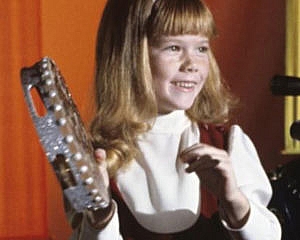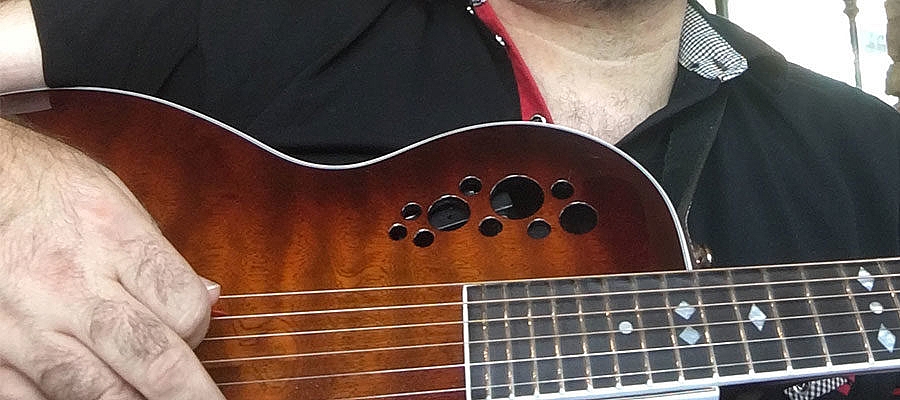I gravitated towards drums when I was young because I had more of a natural proficiency towards them than I had for the other rock instruments. It was the quickest way for me to get involved in the music and start playing in a band. And it was also the most fun and what I liked best; probably specifically because it was the one that came most naturally to me. When I first started, I spent no time learning rudiments and basics. Some of that stuff came later, of course. But day one was playing enough of a beat to try to play along to a song. Which is not to say I was any good as far as drummers go, but I was good enough to start having fun with it instead of holing myself up in a bedroom for months, learning on a pad, or working on scales or something (if I had chosen guitar), before I could start at least attempting to play something that sounded like music.
But the other thing that was always very important to me—besides playing music—was creating it, writing it. Even before I tried being a rock musician, I would spend hours looking at the labels and liner notes from my LPs, checking out the names of the songwriters. Who in the band wrote this song? Who is responsible for creating this wonderful thing that means so much to me? Who is behind this perfect aural masterpiece, starting with nothing but a blank audio canvas?
I always wanted to write. I always wanted to be in a band that literally and figuratively wrote its own story.
I started off, before I played music (besides stuff I did in school, which is another sizable story for another time), trying to be a poet. As a 14- or 15-year-old, I reasoned that if I couldn’t write music because I didn’t know how to, I could at least write lyrics. Or poems.
Lyrics without music are poems, right? Well… no.
But that’s how I thought back then. And that’s why I was always a lousy poet. I never really had interest in poetry, much. But I was always a frustrated songwriter trying to be a lyricist of some sort. If that meant doing it under the guise of calling myself a “poet,” I was prepared to do that.
A bit later, I started drumming and playing with other people who were of like mind that original music was the only way for a band to go. Before we could even play other people’s songs, we’d make up our own. And even though at this point I wasn’t playing any chording instruments, I would be involved in the writing of the material. I’d work with the guitar players on not only lyrics, but arrangements and early attempts at what might be called “producing” in a more sophisticated project.
“It’s tough to write a song on tom toms.”
And I could “sing” parts that I couldn’t play: “Do something like this here,” I’d say to a guitar player, as I would hum out a riff. Or I would say, “What you just did there… do that twice… then go down the neck…. no, not that chord, lower… yes, that one!”
So, really, from the start, I was interested in and involved in composition. Which is a pretentious and fancy word for saying “writing stuff” when a knuckle head like me uses it.
I loved collaborating back then, and still do. But I also loved the notion of writing on my own, too. So I quickly realized that if I was going to make this work, I had to start being able to dabble around with an instrument that could make chords. Or, as I am wont to say, “It’s tough to write a song on tom toms.”
Enter: keyboards. I prefer piano, and kind of did then, too, but this was the 1980s. I knew enough music theory from academic music to be able to teach myself enough to get by a bit. And, to this day, that’s really all I still know on keyboards. I do triads in my right hand and mostly octaves in my left. I am basically self-taught there, although I did take a handful of lessons from a local music shop when I was 17 to try to become more proficient. They didn’t work.
I don’t think the teacher was very good, but, to be fair, I was kind of different from the typical student he had and I don’t think he knew what to do with me. I had explained why I was there many times over the first few lessons, but he either didn’t listen or didn’t believe me, and he kept saying things like, “You need to take some of this stuff and get some of your friends together and form a band and practice and you’ll get really good experience doing that.”
To which I’d always say, “No, I am in a band already. And I play drums. I don’t want to play keyboards in a band. I just want to play well enough to be able to use it to write songs.”
I laugh at that story now, but I wasn’t as much of a precocious little shit as I probably sound like when telling the story in retrospect. I just really wanted to become a better writer.
Anyway, that got me going for a little while, and my early attempts at songs were largely done on the piano and they were not all that great. I’m not saying what I do today is great, either, because beauty is in the ear of the beholder, but at least it makes me happy and I like what I do. Not so much with those early songs. But I kept at it.
By my first year of college I knew a few guitar chords—I mean, like, maybe 3. But I kept tooling around on guitars whenever they were around, which was frequently, because I was in musician circles. I didn’t own one, but I somehow was able to learn to play a bit. By the time I was deeper into college, I was able to play enough to use that as my primary means of writing songs.
And from there, you make little demos, and (back then) recorded them on your four-track, at which point you start messing around with bass guitar and anything else your song needs that you have the guts to try.
And through that growth, it brings me to where I am today.
So where is that?
Well, leaving songwriting out of it for a minute, just know that drummers are usually the first to go when it comes to their services being “not required” for gigs. A lot of venues like to do quieter stuff or don’t have the room for a full backline. And you don’t set your drum set up around the campfire for a sing-along. Put simply, not all gigs, rehearsals, or jams are suitable for drumming.
 So, what happens then? Usually, drummers either stay home, or they join their mates and tap on bongos or a djembe or something. Which—if you’re a real latin player—is probably pretty cool. But if you’re not—ie, if you’re me or someone like me—I think it’s kind of not that great. It’s clearly a concession that a lot of drummers make because they want to be a part of the fun and this is their only choice. But it kind of relegates them to being Tracy Partridge shaking her tambourine though, you know? “Give the kid something to make noise with.”
So, what happens then? Usually, drummers either stay home, or they join their mates and tap on bongos or a djembe or something. Which—if you’re a real latin player—is probably pretty cool. But if you’re not—ie, if you’re me or someone like me—I think it’s kind of not that great. It’s clearly a concession that a lot of drummers make because they want to be a part of the fun and this is their only choice. But it kind of relegates them to being Tracy Partridge shaking her tambourine though, you know? “Give the kid something to make noise with.”
So, if they had another choice, maybe drummers would play something else. And, fortunately for me, I have other choices. And I think I bring more to a group being a rhythm guitar player or something than I do being Tracy Partridge.
And I love doing it. Why the hell not? It’s music. It’s all wonderful fun.
And yet… I still feel at home mostly behind my drums. It’s the role I love to play most when it’s available. And I am continually drawn back to them. Continually fostering the love of the instrument.
More about this, in part 3.

1 comments On Writing and the Joy of Music in Any Form (Multi-instrumentalist Part 2)
Pingback: “Tonight I’m Plating Drums” (Multi-instrumentalist Part 1) – Music Shop Talk ()